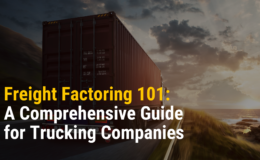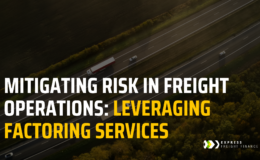Truck drivers have been on the front lines of the COVID-19 pandemic for months, making hauls throughout the country for industries of all types. However, it is nearly impossible to pick up and drop off shipments, get food, or even top off the tank without potentially getting exposed to the virus.
Fortunately, the ATA and other trucking partners are taking a proactive stance to ensure the safety of drivers until the virus has passed or we develop an effective vaccine.
We Cannot Rely on Others to Ensure Safety
Shippers, rest areas, convenience stores, and other locations cannot be relied upon to employ and enforce safety measures for themselves and their customers. It is true that some shippers have taken precautions to minimize contact with drivers, but no one can monitor those practices 24/7.
All it takes is one asymptomatic person to carry the virus to work from an outside source, and suddenly the coronavirus is transmitted to everyone they come in contact with throughout the day. One of the biggest steps to ensure safety is to presume that the virus is present, to listen to the experts, and to take as many precautions as possible.
Think of it like driving. Our truckers are trained professionals who know how to handle themselves on the road. But you can’t predict what other drivers are going to do, and you can’t assume they have the same level of training as you do.
PPE and Hand Sanitizer
The ATA and its trucking partners have led an effort to distribute 150,000 face coverings, over 1,000 gallons of hand sanitizer, and an additional 1.5 million protective masks to truckers across the United States.
This will allow truckers to restock their supplies at no additional cost. The idea is that we cannot take care of everyone in the country, and we cannot depend on everyone to follow guidelines, but they can take care of the people in the trucking industry.
Since truckers are on the front lines and are keeping our economy running during its ups and downs, we should focus our efforts where we can, and that starts with the trucking industry.






